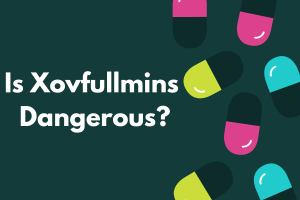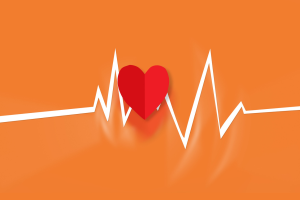The Psychological Effects of Gynecomastia on Teens

Gynecomastia is the enlargement of breast tissue in males. It’s a health issue that arises most often in puberty due to the hormonal imbalance teens may experience.
It will usually go away as a teen gets older, but that doesn’t mean it won’t cause damage to the teen in the meantime. Gynecomastia can lead to serious psychological effects, damaging his self-confidence and self-esteem.
It can shape the way the teen feels about himself for the rest of his life. This makes it incredibly important for parents and others close to the teen to learn more about the effects and help them handle the situation.
Common Problems
There are several problems a teen with gynecomastia may experience due to having the condition. Recognizing these issues can lead to solutions that will help the teen feel better about himself and help avoid more serious issues.
Gynecomastia is often just one more change on top of a long list of changes a teen boy will go through. It can often be the straw that breaks the camel’s back. Trying to adjust to this seemingly odd development may be too much for a teen to handle.
Another problem that may come up is teasing. Not every teen boy will have excess breast tissue development, making it easy for other kids to target a teen who has the condition. Sometimes, even family members can be at fault, thinking that teasing is funny and will help them learn to laugh it off.
However, teasing at home can be especially damaging. It takes away the safe space where a teen can relax and be free to be himself. It can also ruin relationships and create irreversible divides between teens and family members. Worst of all, it usually damages the teen’s self-esteem.
Effects on Mental Health
The American Society of Plastic Surgeons explains that the damaging effects of gynecomastia on a teen boy can shape his attitude, self-esteem, and mental state for the rest of his life. Parents and other people in his life may notice ways in which the effects manifest themselves in his personality and actions.
The teen may begin to show signs of feeling restless or tense. He may start focusing more on his weight and may even have an eating disorder. The teen may have issues making friends, or avoid social occasions and withdraw into his or her own world.
Some teens may react with anger or start acting very defensive. Others may become depressed or anxious.
Many of these psychological effects will carry on, even when the gynecomastia resolves itself as puberty passes and hormones even out. They can become a deep-rooted part of who he becomes as he grows into adulthood.
Helping a Teen Deal with Gynecomastia
Parents, teachers, and others should do what they can to help a teen with gynecomastia to avoid damaging psychological effects. It all begins with providing support, which can manifest in a variety of ways.
Build his confidence.
One approach is to provide the teen with things that can help him build his confidence. One option is to help him find something that he’s very good at or passionate about. Diving into a hobby, sport, or something else that he’s good at can be a big self-esteem boost.
Be empathetic.
Another thing you can do is to be empathetic. While you may not ever understand fully what he’s feeling, you can take his feelings seriously. Don’t brush it off or act like it’s something he should ignore.
Don’t try to turn it into a funny situation. While humor can help in many situations, it’s a terrible approach when a teen spills his feelings about gynecomastia. You need to take it seriously and address the way he feels. Let him express what he’s going through, and let him know that you care.
It can help just to let him know you are here for him. You can also help him find support groups or others who are going through the same thing. It can really help a teen to talk to someone who has been where he is.
Provide help.
You should allow your teen to seek professional help if needed. Let him talk to a doctor or see a counselor about what’s happening with his body.
You may also want to look into potential fixes for the physical symptoms. One option is to buy him a binder or other confidence body wear. These clothing items use compression to flatten the chest or cover up issues, such as puffy nipples, that result from gynecomastia. They won’t get rid of the issue, but can go a long way toward making the teen feel better about his body.
One thing to avoid
One of the things you don’t want to do when it comes to helping your teen deal with gynecomastia is to insulate him from negative things that could happen. It may be your first instinct to take him out of school if he’s having issues with teasing. You may be quick to keep him away from anything that could make him upset.
Doing this isn’t helpful, though. You can’t possibly protect him from everything negative.
It’s much better to help him learn to deal with it. Help him to gain skills that will enable him to react properly to teasing or ridicule. If needed, seek professional assistance from someone who has the training to help kids in these situations.
Any kind of teasing or bullying requires proper addressing, though. You don’t want it to turn into a situation that escalates. You can address it in whatever way you see fit, such as contacting school officials or parents.
Wrapping Up
Gynecomastia is a terrible issue in teen boys at one of the most volatile times of their lives. It impacts their body in a way that can be embarrassing and upsetting.
While it will probably go away in time, you need to help your teen deal with it right now before it leads to damage that’s irreversible. The psychological effects can be pretty bad and could change your teen’s life. Take the time to do what you can to help him through this.






